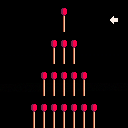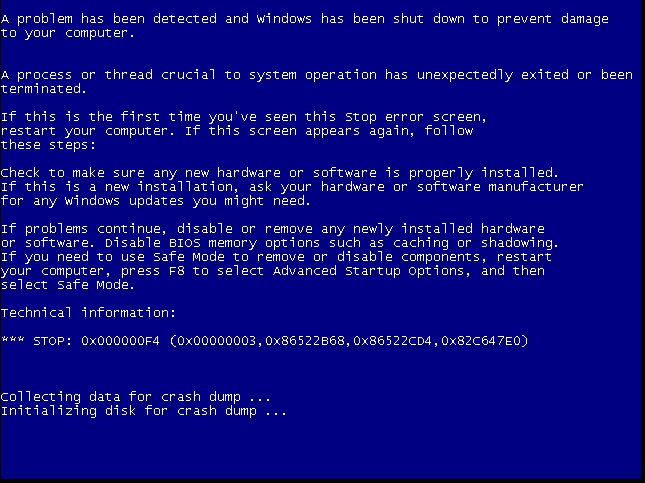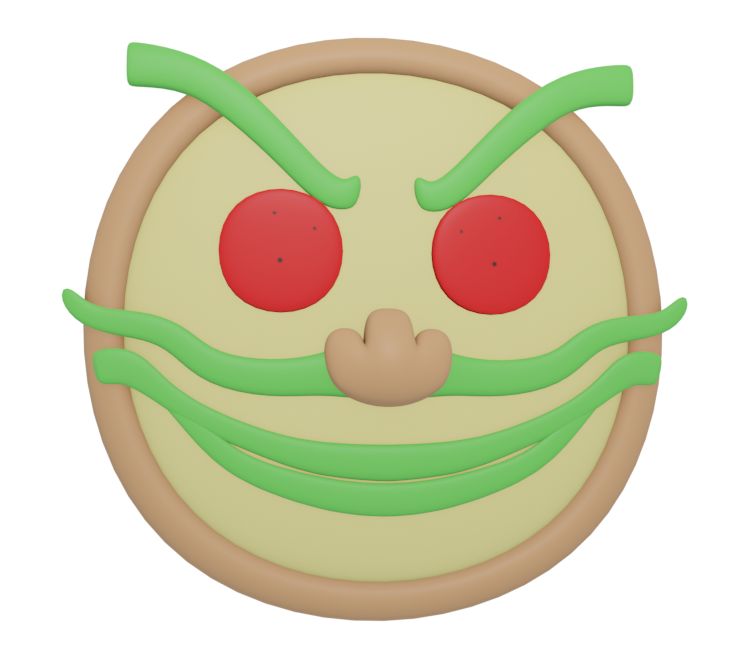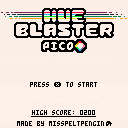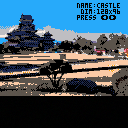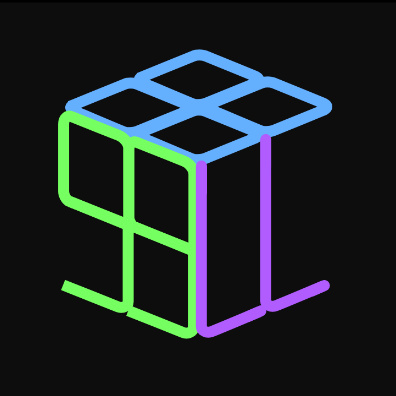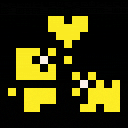I challenged myself to make an entire 30-level Celeste Classic mod in 30 minutes. That's only a minute per level! Fortunately, I was up to the task, but the result is... interesting.

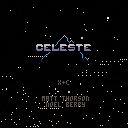

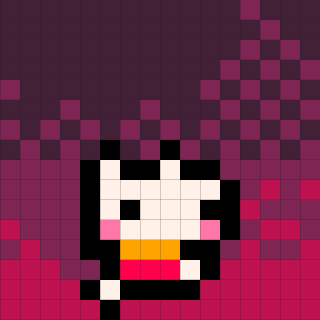
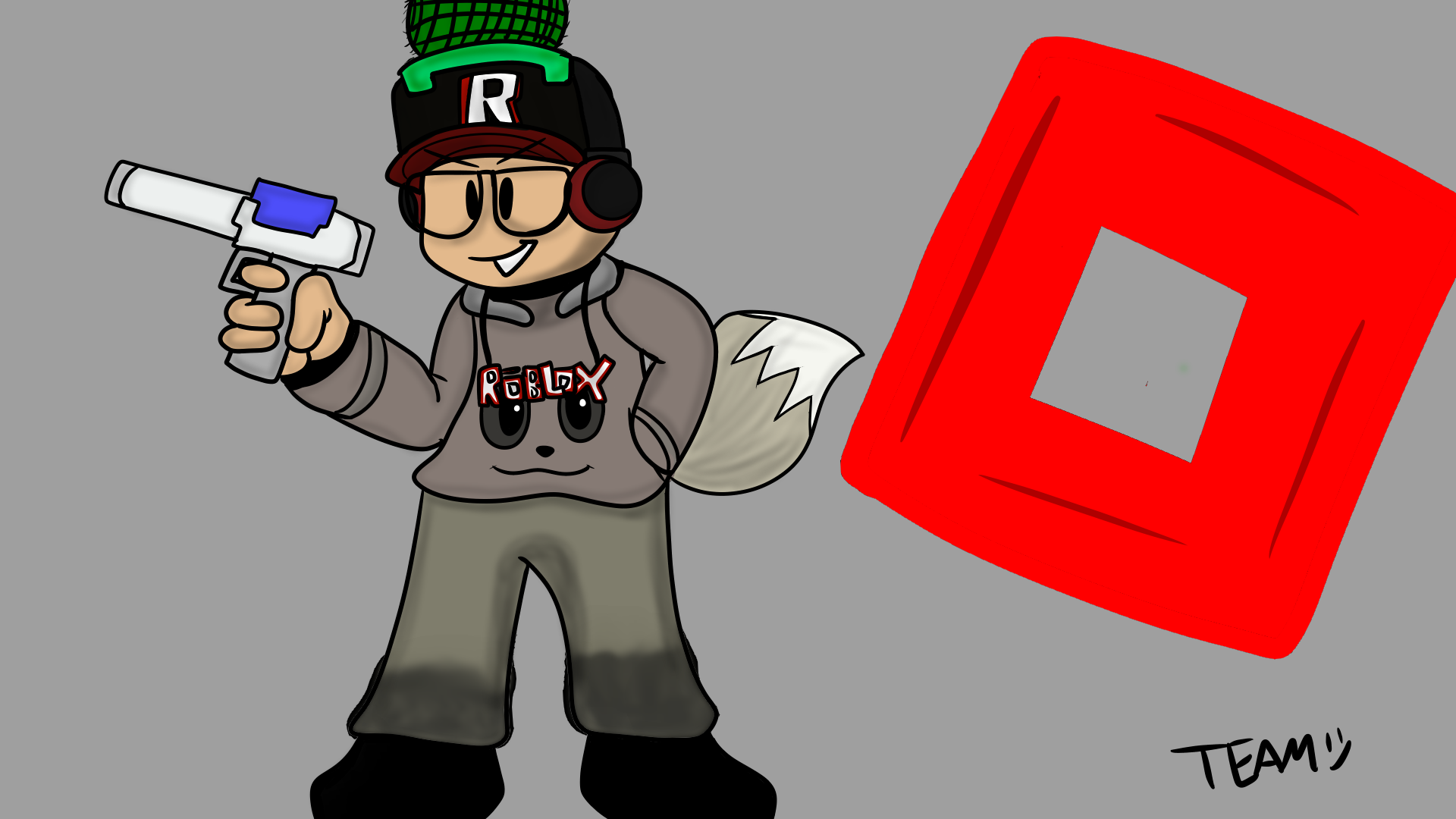



This is a simple PICO-8 implementation of the classic game Nim.
Controls
On your first turn, press the O button to let the computer go first.
Use the arrow keys to select matchsticks and O to remove them.
Rules
On your turn, remove any number of matchsticks from one row. The player who removes the last matchstick loses.
Changelog
1.1:
- Fixed bug where AI would skip turn in a specific losing position
- Added delay to AI's move for clarity
1.2:
- Fixed bug where game would freeze at victory screen
Virtual Judgement Shenanigans
Made for 242th Trijam, a jam where the goal is to code a game in under 3 hours.
Another story-based game! Not as happy with how this turned out; the end result was pretty rushed, but I entered it anyway cus why not.
Anyway, enjoy!
Itch.io Page -> https://stadam.itch.io/the-solkeep-judgement-device
Game Jam Page -> https://itch.io/jam/trijam-242/rate/2301074
And I'm not just talking about putting an emulator in a specially designed box, you could obviously do such a thing. Rather, what I'm talking about is having all of the consoles hardware implemented in discrete logical chips, effectively removing the "fantasy" from the phrase "fantasy console". This might sound like a daunting, if not impossible task, but I have reason to believe it is quite possible!
You see, the official implementation of the Lua programming language doesn't just interpret it's source code by analyzing the program tree. Rather, it compiles it into a bytecode which is then emulated as a virtual machine. In fact, this virtual machine is the reason why some code takes longer to run than other code, because the program is also emulating the amount of time the CPU needs to process it.
With this in mind, it seems like it should be entirely possible to create a physical version of one, assuming that a Lua bytecode CPU actually existed. Slap it together with some RAM and a BIOS, and a surprising form of merchandise just might be born! What some of your thoughts?

This is my very first game in Pico-8.
I made this game based on the original cave driver tutorial from Dylan Bennett on the fanzine Game Development with Pico-8.
This work have a bunch of features that i had in mind, thinking about how to make this a fun game. Also a little bit of hallowinish.
Features
- Enemies
- Collectible (coins)
- Random effects
- Animations
- Title screen
- Persistent Score
Collectibles
|
|
[8x8] |




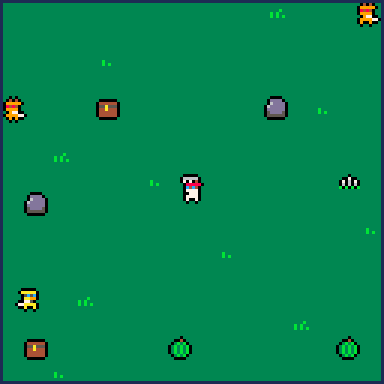
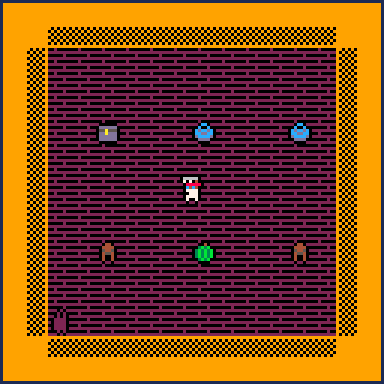
BUN BUN SAMURAI
Overview
The Hero, weary of fighting in the endless wars fueled by squabbling nobility, wanders across a countryside overridden by bandits and wild ronin. He hopes only to return to the peaceful village he once called home. Wherever he goes, he protects the weak and helpless, leaving no evil unbloodied.
Gameplay
- Movement - Directional buttons.
- Attack - Press direction and [O] button.
Attacking and Combos
- Killing an enemy grants the Hero Prestige.
- Enemies are not killed by direct attacks - only by knocking them into other enemies or objects. Knocking an enemy into more enemies or objects causes a combo chain worth more Prestige for each impact.









I'm on a two-week trip, and my only PC during my time away from home is a small Chromebook (IdeaPad Duet by Lenovo). Until I was in a hotel room and started installing PICO-8 for fun, I completely forgot that the computer's CPU was ARM, not Intel. Fortunately, there are several variations for Raspberry Pi. I discovered that 'pico8_64' among them works flawlessly on my ARM Chromebook. All I had to do was install 'libsdl2-2.0-0' using good old apt-get.
demake of the modern classic hue blaster
https://misspeltpengin.itch.io/hue-blaster
version 1.1:
control type mouse:
.
scroll wheel: change color
left click: shoot
arrow keys: move
.
.
control type controller:
.
x: change color
z: shoot
d-pad: move
.
.
enemy details:
.
circle:
.
health: 2
speed: moderate
.
.
triangle:
.
health: 2
speed: fast
.
.
square:
.
health: 4
speed: slow
.
.
.
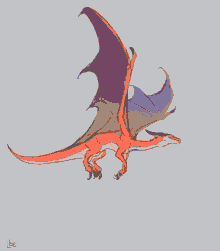



I notice mapdraw(), the deprecated name for map() got removed from jelpi.p8 at some point, but it's still being used in cast.p8.
Also, I see band() in jelpi.p8 when we want people using the & operator instead.
Maybe set up a script to grep the demos for the known-deprecated functions and just add new patterns whenever something is deprecated, then run the script before the each publish?
Hi,
Further enhancements to the compression format (10-20% smaller, especially in photos), and about 2x faster image rendering.
I made the repositories public, pls give them a try :)
The encoder: https://github.com/afunai/pen_encoder
The decoder: https://github.com/afunai/pen_decoder
The slideshow: https://github.com/afunai/pen_decoder/tree/slideshow
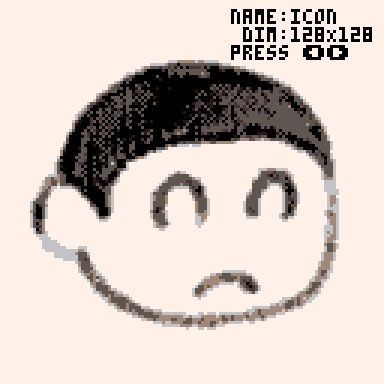

UPDATE
1.02
- Added PUPS FOUND display to OPTIONS MENU.
This keeps track of consecutive PUPPERs rescued and is reset when you LOSE. It is saved after each WIN, so you can close the game on the TITLE SCREEN, before starting another run, and continue your streak later. This will reset if you quit out during a run. - Tuned down Levels 7 to 10 slightly.
- PUPPER now is deactivated if they step on a ZAPPER.
- Bumping PUPPER when they are active will now give you +1 ENERGY!
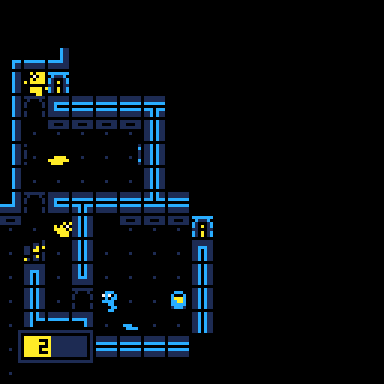
1.01
- You can now shoot walls to destroy them and open new paths.










 6 comments
6 comments

